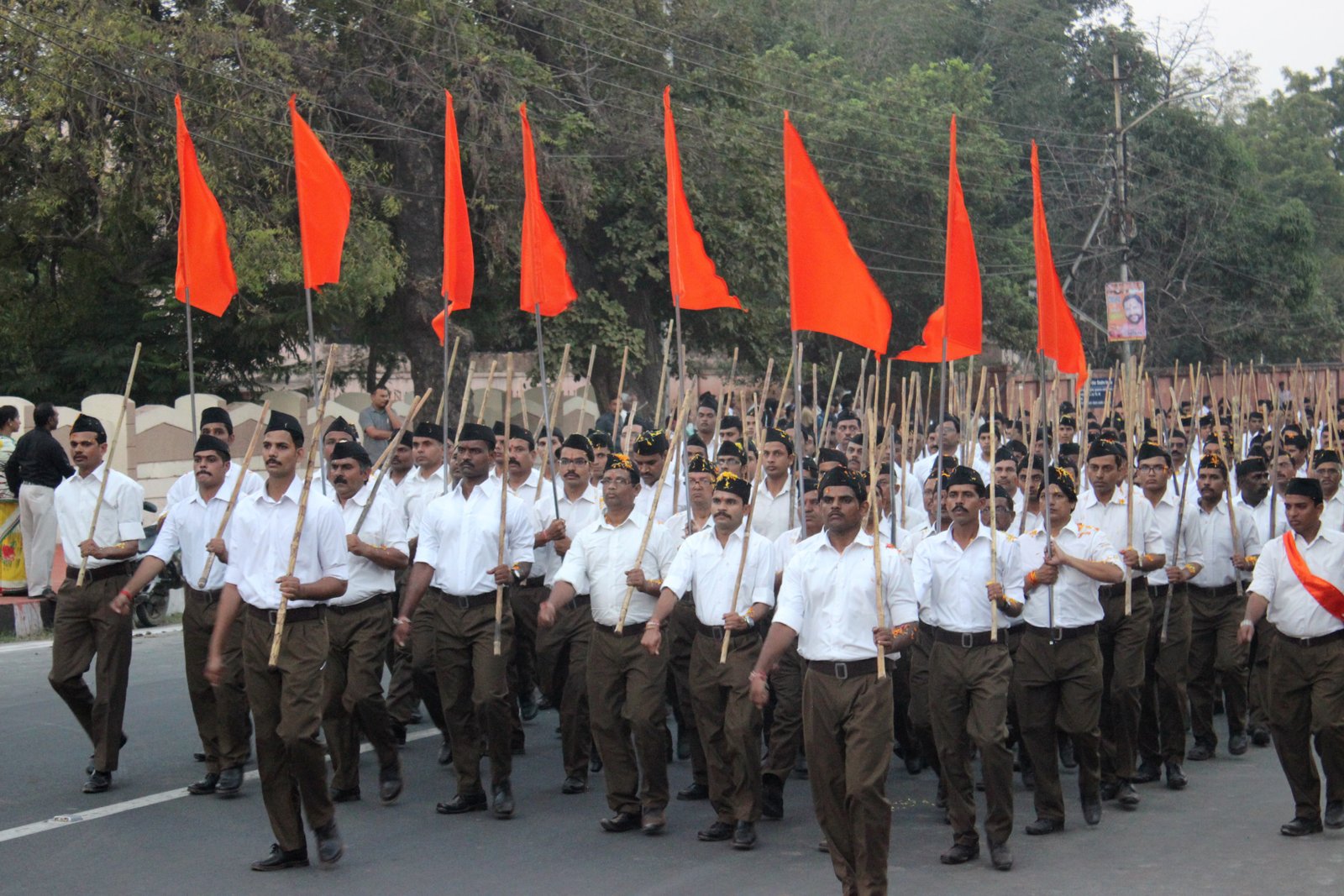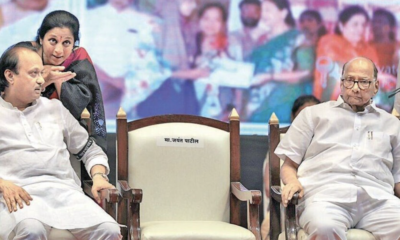News
Congress Criticises Modi Govt. Decision to Lift Ban on participation of Bureaucrats in RSS
In a significant development, the Narendra Modi-led government has lifted the decades-old ban on government employees participating in Rashtriya Swayamsevak Sangh (RSS) activities. This decision, dated July 9, 2024, has sparked a wave of criticism and debate across the political spectrum, with senior Congress leader Jairam Ramesh leading the charge.
Historical Context and the Ban’s Genesis
The RSS, founded in 1925, has been a contentious organization in Indian politics. The initial ban on the RSS came in 1948, following the assassination of Mahatma Gandhi by Nathuram Godse, an erstwhile member of the RSS. The ban, imposed by then-Home Minister Sardar Vallabhbhai Patel, was lifted after the RSS assured the government of its adherence to peaceful activities. However, the relationship between the government and the RSS has been tense over the decades.
In 1966, a fresh directive was issued, explicitly targeting the involvement of government employees in RSS activities. This ban was grounded in the Central Civil Services Conduct Rules, which aimed to ensure that government servants remained neutral and unbiased in their professional conduct.
The Recent Decision and Political Fallout
The recent decision to lift the ban has reignited old debates about the RSS’s role and influence in Indian politics and governance. Jairam Ramesh, in a pointed critique, highlighted the ban’s historical context and questioned the motivations behind its removal.
फरवरी 1948 में गांधीजी की हत्या के बाद सरदार पटेल ने RSS पर प्रतिबंध लगा दिया था।
इसके बाद अच्छे आचरण के आश्वासन पर प्रतिबंध को हटाया गया। इसके बाद भी RSS ने नागपुर में कभी तिरंगा नहीं फहराया।
1966 में, RSS की गतिविधियों में भाग लेने वाले सरकारी कर्मचारियों पर प्रतिबंध लगाया… pic.twitter.com/17vGKJmt3n
— Jairam Ramesh (@Jairam_Ramesh) July 21, 2024
“Sardar Patel had banned the RSS in February 1948 following Gandhi ji’s assassination. Subsequently, the ban on assurances of good behavior was withdrawn. Even after this, the RSS never flew the Tiranga in Nagpur,” Ramesh stated. He underscored the longstanding apprehensions regarding the RSS’s influence on public institutions and the implications for India’s secular fabric.
Ramesh’s comments were more sarcastic when he remarked, “The bureaucracy can now come in knickers too, I suppose,” alluding to the traditional RSS uniform of khaki shorts, which was replaced by brown trousers in 2016. This quip mocked the government’s decision and evoked imagery of a bureaucratic system potentially swayed by ideological affiliations.
The BJP’s Defense
In contrast, the BJP has defended the move, calling it a correction of historical wrongs. Amit Malviya, head of the BJP’s IT department, argued that the original ban was unconstitutional and that lifting it was a step towards restoring the rights of government employees. “The unconstitutional order issued 58 years ago, in 1966, imposing a ban on government employees taking part in the activities of the Rashtriya Swayamsevak Sangh has been withdrawn by the Modi government,” Malviya stated.
The unconstitutional order issued 58 years ago, in 1966, imposing a ban on Govt employees taking part in the activities of the Rashtriya Swayamsevak Sangh has been withdrawn by the Modi Govt. The original order shouldn’t have been passed in the first place.
The ban was imposed… pic.twitter.com/Gz0Yfmftrp
— Amit Malviya (@amitmalviya) July 22, 2024
The BJP’s stance underscores a broader ideological battle about the place of the RSS in Indian society and governance. The party views lifting the ban as a reaffirmation of its commitment to its ideological roots and a step towards inclusivity for its supporters within the government framework.
Broader Implications and Public Perception
The lifting of the ban raises several questions about the separation of state and ideology in India. Critics argue that allowing government employees to participate in RSS activities blurs the lines between personal belief systems and professional duties, potentially leading to biases in administrative functions.
Supporters, however, see this as an affirmation of the democratic rights of government servants to associate freely with organizations of their choice, provided they adhere to the conduct rules while performing their duties.
The controversy surrounding this decision reflects the deep-seated ideological divides in Indian politics. As the debate unfolds, it is clear that the implications of this move will resonate beyond immediate political skirmishes, influencing the broader discourse on governance, secularism, and the role of ideological organizations in public life.
In this charged atmosphere, the Modi government’s decision is pivotal in the ongoing tussle over India’s political and ideological identity. Whether this move will be seen as a stride towards greater inclusivity or as a step that undermines the secular fabric of the Indian state remains to be seen.










































